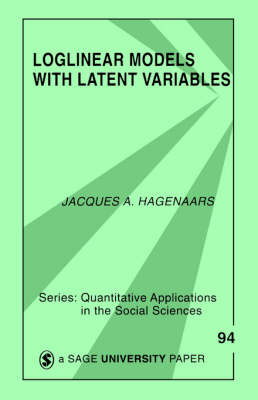Quantitative Applications in the Social Sciences
2 total works
Sociologists with a quantitative bent will doubtless find it useful. . . . well-written, with a wealth of explanation. . . --Dougal Hutchison in Educational Research "Loglinear Models with Latent Variables, by Jacques A. Hagenaars, is a timely contribution to the literature that serves to inform researchers of the richness of loglinear approaches to analyzing latent categorical variables. . . . The author provides a clear exposition of the loglinear model." --Scott L. Hershberger in Structural Equation Modeling Since the 1980s, the loglinear model has become the dominant form of categorical data analysis as researchers have expanded it into new directions. Jacques A. Hagenaars′ book shows researchers the applications of one of these new developments--how uniting ordinary loglinear analysis and latent class analysis into a general loglinear model with latent variables can result in a modified LISREL approach. This modified LISREL model will enable researchers to analyze categorical data in the same way that they have been able to use LISREL to analyze continuous data. Beginning with an introduction to ordinary loglinear modeling and standard latent class analysis, Hagenaars explains the general principles of loglinear modeling with latent variables; the application of loglinear models with latent variables as a causal model, as well as a tool for the analysis of categorical longitudinal data; the strengths and limitations of this technique; and lastly, a summary of computer programs that are available for executing this technique.
Interpreting and Comparing Effects in Logistic, Probit and Logit Regression
by Jacques A. P. Hagenaars, Steffen Kuhnel, and Hans-Jurgen Andress
Published 20 February 2024
Log-linear, logit and logistic regression models are the most common ways of analyzing data when (at least) the dependent variable is categorical. This volume shows how to compare coefficient estimates from regression models for categorical dependent variables in three typical research situations: (i) within one model, (ii) between identical models estimated in different subgroups, and (iii) between nested models. Each of these three kinds of comparisons brings along its own particular form of comparison problems. Further, in all three areas, the precise nature of comparison problems in logistic regression depends on how the logistic regression model is looked at and how the effects of the independent variables are computed. This volume presents a practical, unified treatment of these problems, and considers the advantages and disadvantages of each approach, and when to use them, so that applied researchers can make the best choice related to their research problem. The techniques are illustrated with data from simulation experiments and from publicly available surveys. This data will be available on a SAGE website for the book, along with Stata syntax.

